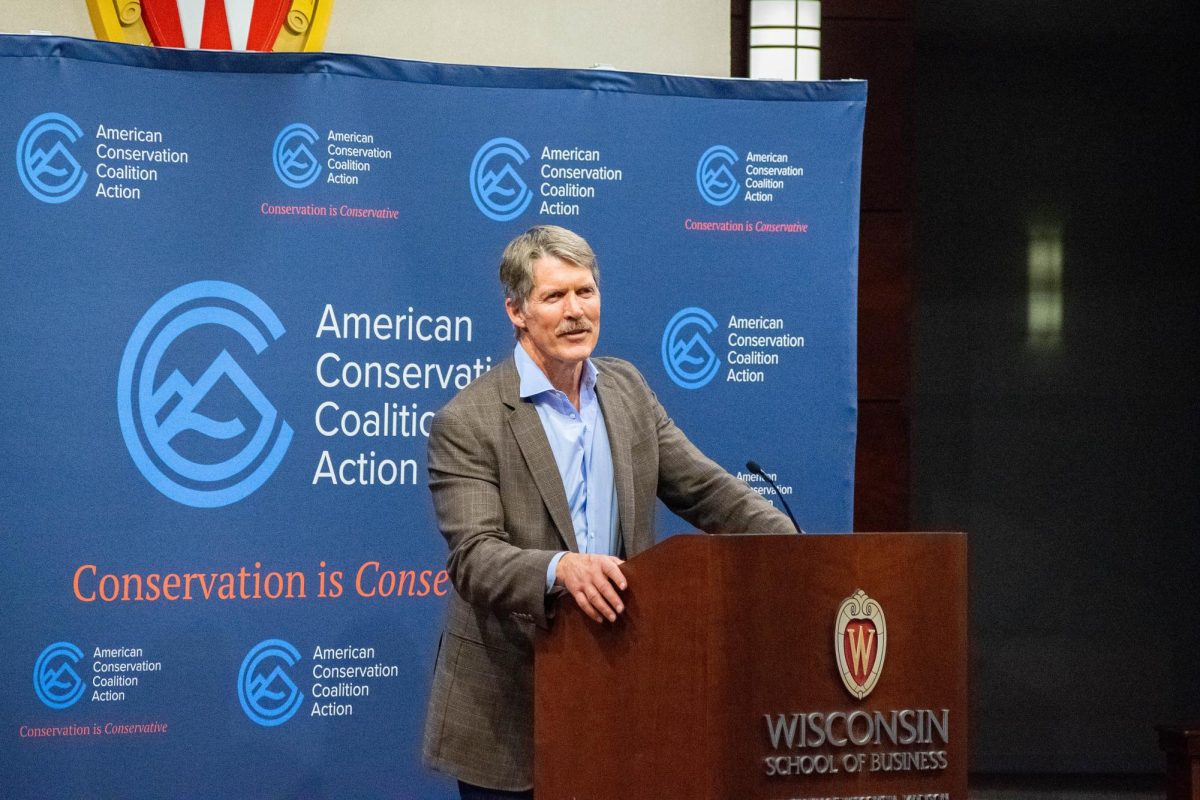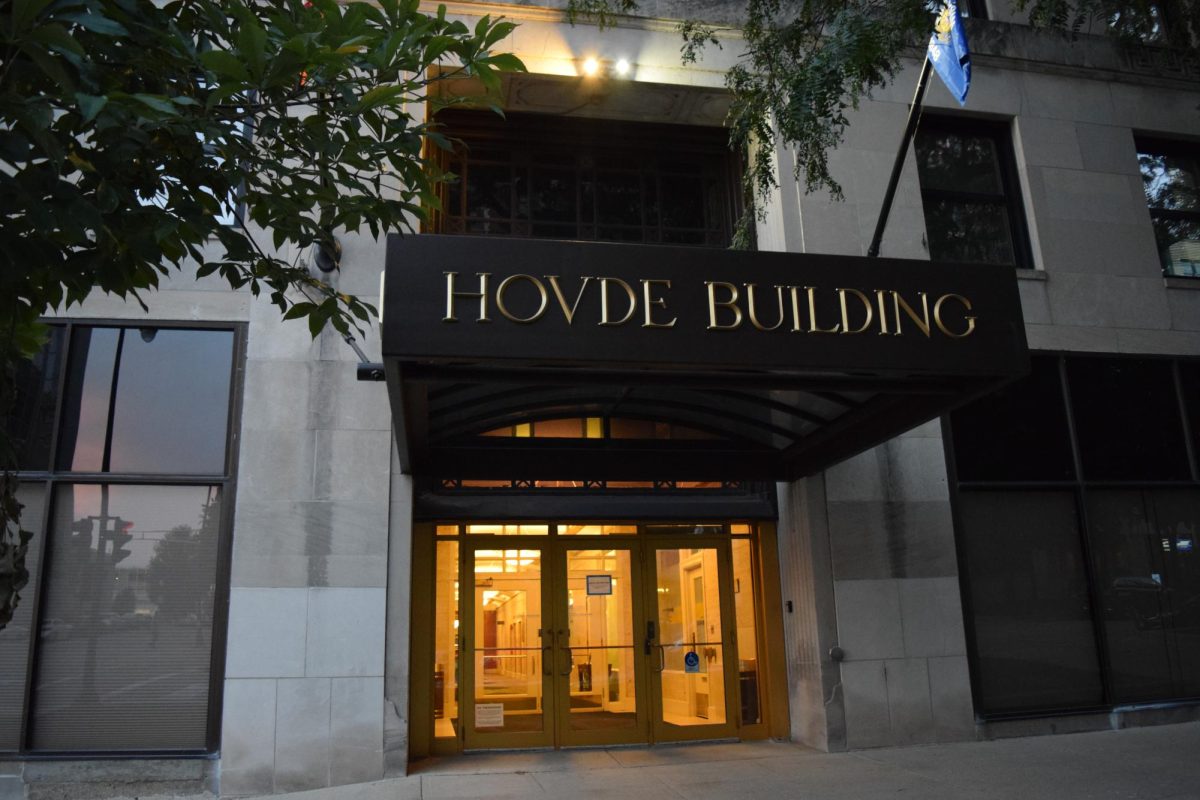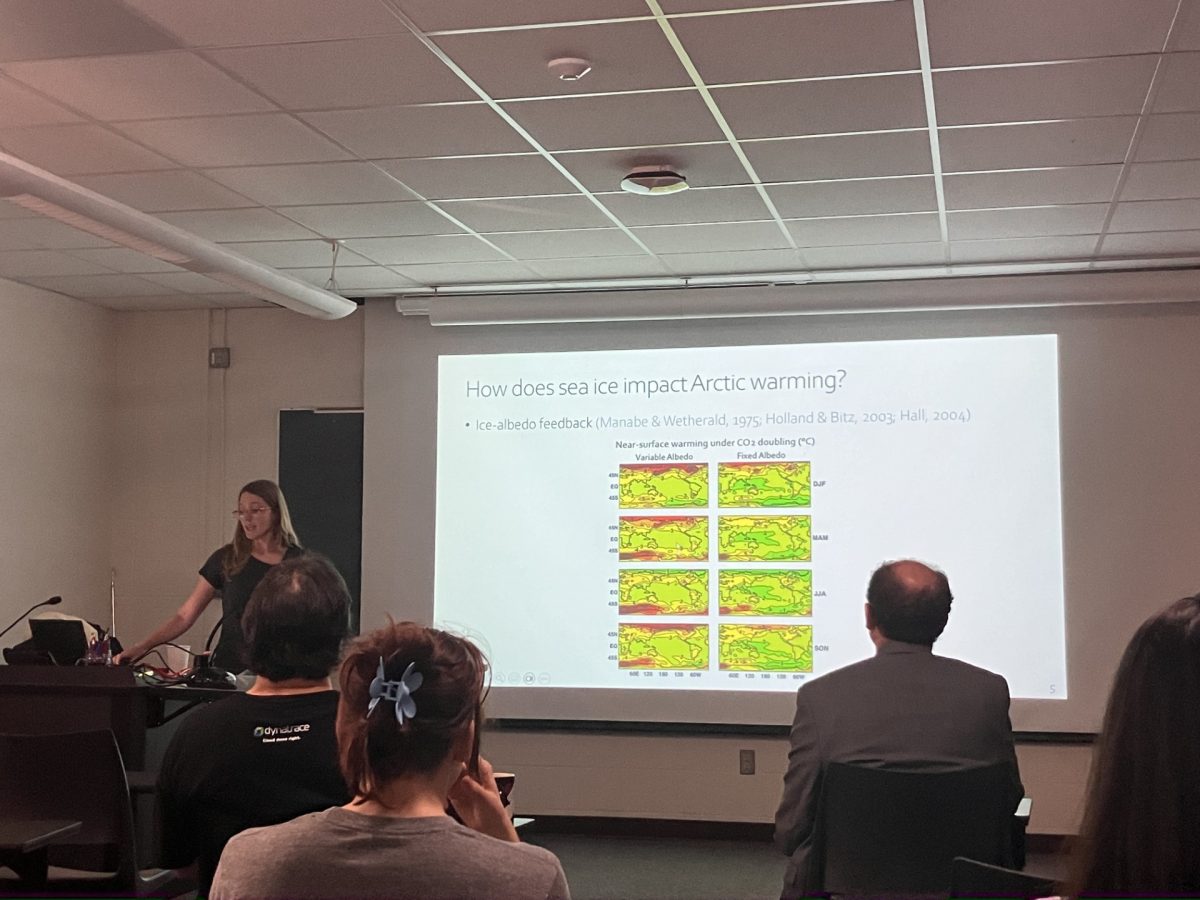Award-winning broadcast journalist Betsy Rosenberg expressed concern over the lack of environmental awareness in United States’ citizens Tuesday and encouraged students and Madison residents to reduce, reuse and recycle potential waste.
Rosenberg said students and U.S. residents should perform a personal waste audit to reduce the amount of garbage they add to landfills across the country. Many people, she said, are uninformed of their “waste line” and do not stop to reevaluate their lifestyles.
Rosenberg also commented that many potential job opportunities exist in the environmental market and encouraged attendees to explore eco-friendly options when choosing a career.
“You can do well while doing good,” Rosenberg said. “I’m trying to demonstrate the power of the individual and environmental organizations and motivate [people] to work in the environmental sector.”
She also said that many misinterpret the idea of an “environmentalist.” The term, she said, has a connotation that many interpret as radical. Everyone should be an environmentalist, however, because everyone must live and pass on the environment to his or her children.
Rosenberg also fostered the idea of promoting demand for environmentally friendly products across the country. Much of manufacturers’ reluctance to market products that use recycled components, she said, is a lack of consumer interest in eco-friendly options.
“Many forget that recycling is a loop,” Rosenberg said. “If we don’t produce demand for recycled products, all that recycling won’t do as much good.”
She also promoted the purchase of environmentally friendlier hybrid vehicles, and much of her presentation centered on the country’s bad “karma,” resulting from the increased popularity of sport utility vehicles like the excessively wasteful Hummer.
Rosenberg said many families are unable to purchase hybrids due to a lack of fuel-economic vehicles in the family car market. Demand for efficient SUVs, minivans and station wagons could assuage the problem, she said, and citizens should inform manufacturers that consumers want to purchase gas-sipping transportation.
She also mentioned the attempts made by members of congress to increase the level of vehicle fuel efficiency the government demands from carmakers. Rosenberg said the attempts were voted down because manufacturers claimed the regulations would be detrimental to the companies’ profit margins.
This happened, she said, even though the profit earned by the sale of SUVs exceeds losses potentially stomached by the expansion of current production lines.
Rosenberg encouraged Madison residents to endorse typical environmentalist practices. Composting, recycling and using environmentally friendly forms of energy production are important and can be achieved by the public with relative ease, she said.
Mike He, a member of the Sierra Student Coalition, added that students should take personal responsibility for the environment.
“When you purchase a bottle or can, it should be your personal mission to find that container a home in a recycling bin nearby,” He said. “It is sad that when people throw something away, [the repercussions of their actions] never enter their minds.”
He also endorsed the efforts of library mall cart owners. Many of the cart owners, he said, have allowed customers the option of supplying a reusable container for their food purchase.







